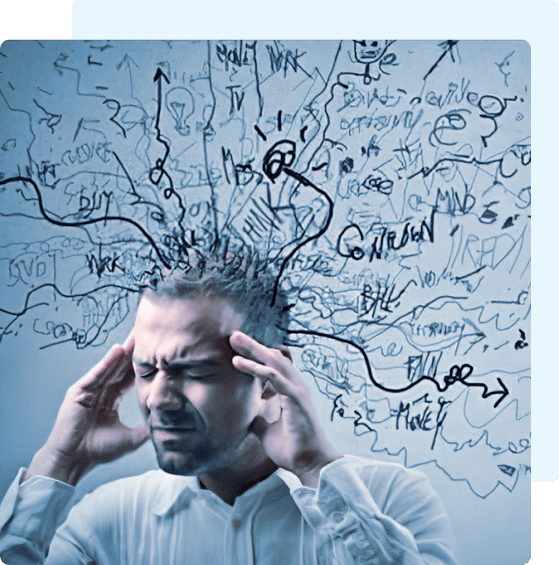HOME >
- PTSD
Recovery from PTSD
Post-traumatic stress disorder (PTSD) is a disorder that affects certain people after they have been through a traumatic, frightening, or hazardous incident. It’s normal to be scared during and after a terrible event.

Post-Traumatic Stress Disorder
Anyone who has been exposed to a stressful experience can develop PTSD. An incident that generates fear, helplessness, or horror in response to the danger of harm or death might trigger the onset of PTSD.
Some common triggers for Post-traumatic stress disorder include sexual assault, accidents, physical violence, combat, the death of a loved one, and witnessing terrorist acts.
A team of psychiatric health and wellness experts at One Behavioral diagnosis and treats PTSD, so you may regain control over your life.

PTSD Core Warning Signs
Post-traumatic stress disorder (PTSD) can manifest itself in a variety of ways, including physical, mental, and emotional manifestations.
Among the most common signs and symptoms are:
- Getting Away from People and Places.
- Feeling a Little Tense.
- Flashbacks.
Getting Away from People and Places
- People with PTSD will go to tremendous measures to avoid thinking about the horrific event that occurred in their lives.
- They may get disconnected from their loved ones.
- They may experience emotional emptiness and lose interest in previously enjoyed activities.
Feeling a Little Tense
- PTSD patients relive the experience over and again, they may become hyper-vigilant or on-guard at all times.
- People around them may experience feelings of rage or unexplainable irritability.
- During the day, they may have trouble falling asleep or staying asleep.
- They may find it tough to focus and are quickly startled.
Getting Away from People and Places
- People with PTSD frequently have recurring nightmares or have images flash into their heads at random moments.
- These trauma recollections can cause the person to have significant emotional and physical symptoms, such as shivers, racing heart, trembling, or panic attacks.
The good news is that PTSD is treatable. Only if it is detected and treated at the appropriate time.
How Do We Address PTSD?
Traumatic events can be tough to process, but facing and understanding your emotions, as well as obtaining professional support, is frequently the only way to properly cure PTSD.
With our therapeutic assistance, you will be able to go about your daily activities without fear.
Psychotherapy
A 60-90 minute CBT session every 12 weeks will help you talk about the traumatic incident and memories that are disrupting your life. CBT will assist you in comprehending your predicament while embracing and understanding that it is not your fault.


Medication
Medications might help you avoid thinking about and responding to what happened, which can include nightmares and recollections. They can also assist you in regaining a more optimistic attitude toward life and a sense of normalcy.
Think Better, Live Better
One Behavioral engages with licensed experts who work with people who have been diagnosed with PTSD. Our team is qualified and has the requisite skill and understanding to not only satisfy your clinical needs, but also provide you with the care you require.
Book an Appointment for PTSD Treatment
Although post-traumatic stress disorder can be frightening, you don’t have to confront it alone. The caring team at One Behavioral is here to assist you.